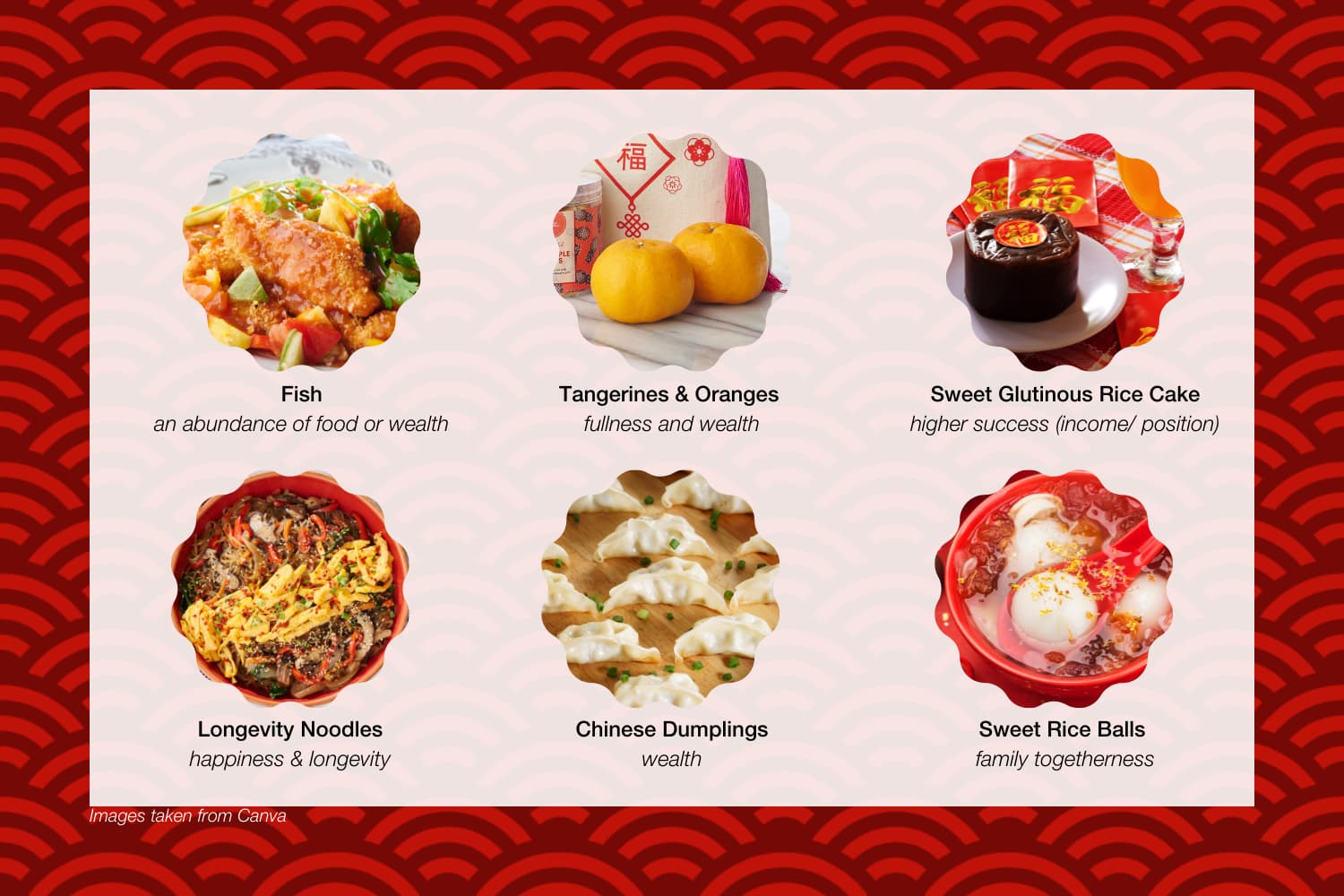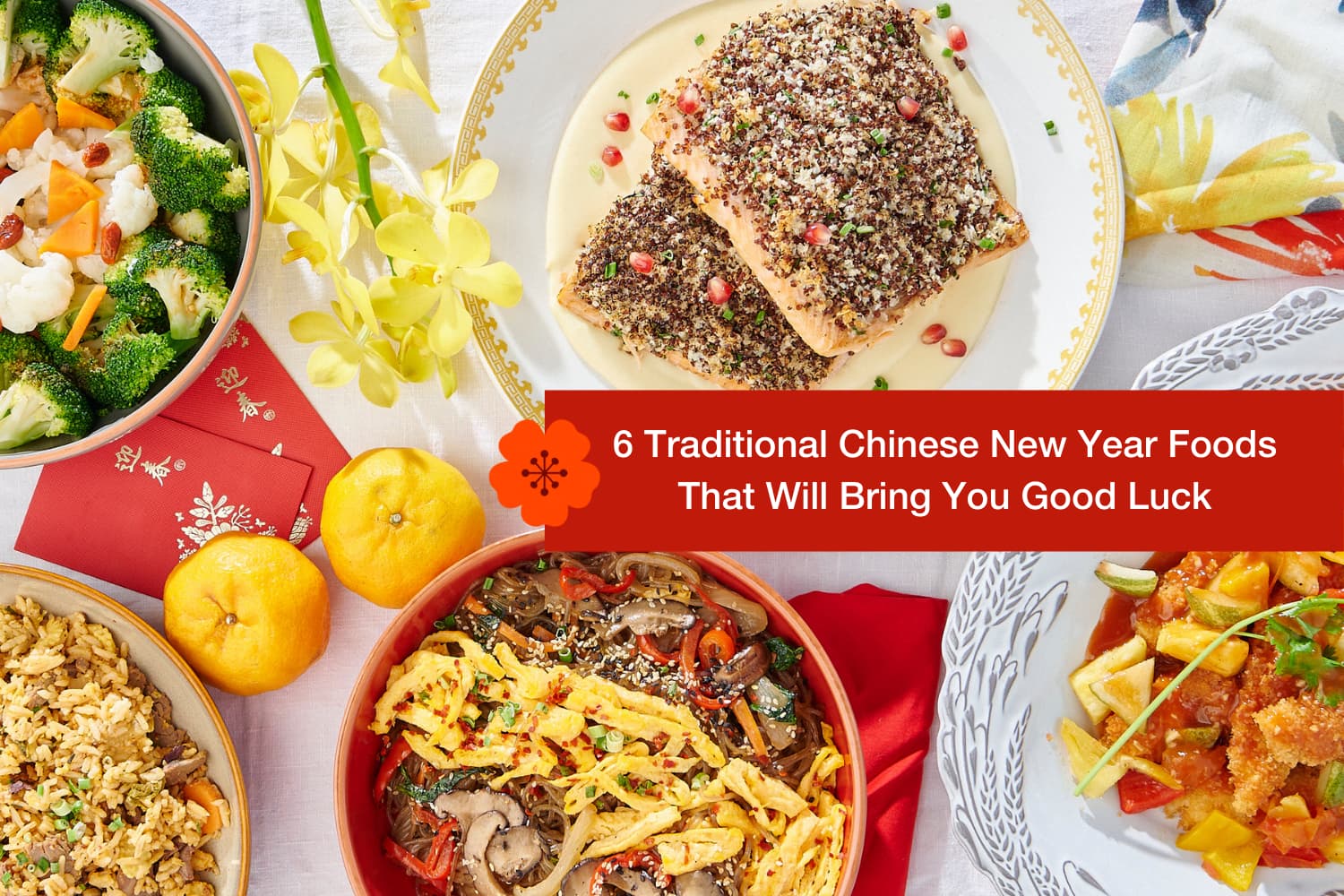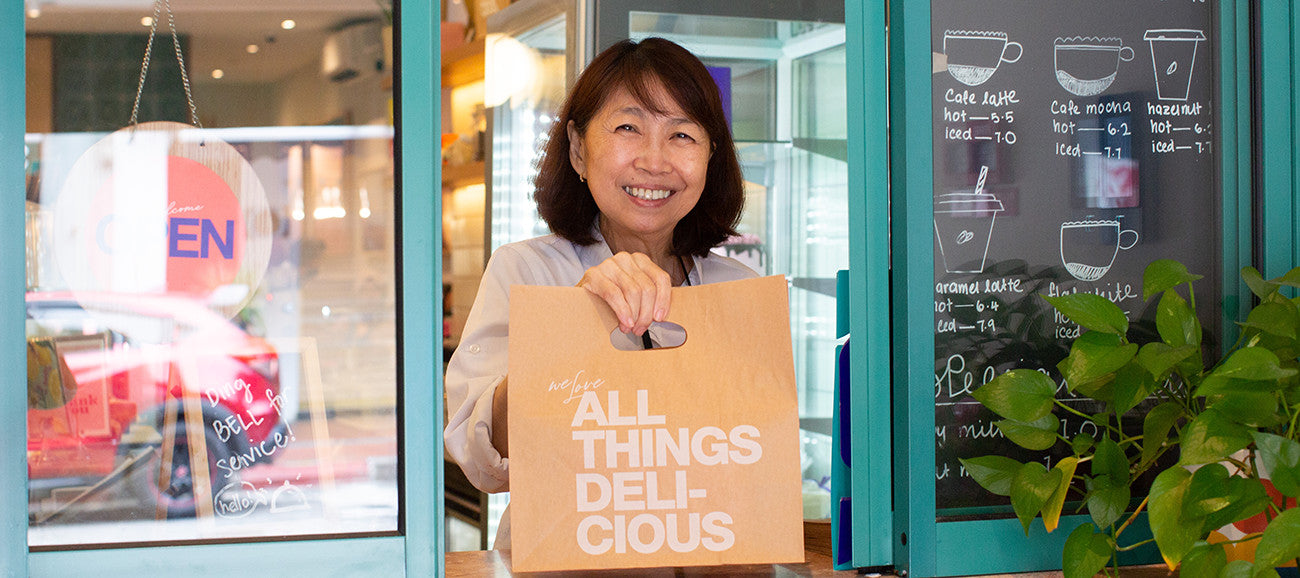As we say goodbye to the year of the Ox and greet the upcoming Year of the Tiger, we turn to these time-honored food traditions. Chinese New Year, also known as Spring Festival, is a festive time for many around the world. This festival features heavily on the colour red, bright new clothes, red packets or ang baos, loud firecrackers and most importantly, lucky good food!
Here are some foods commonly found on the Chinese New Year dining table and what they symbolise:

Chinese New Year food traditions are symbolic and some age-old traditions include:
- Serving 2 whole fish and saving 1 for leftovers to represent the surplus in the new year.
- Offering glutinous rice cake to achieve career or business success in the new year.
- Eating and displaying tangerines and oranges to bring good luck and fortune.
Here, we have rounded up 6 essential dishes to eat during Chinese New Year, and the symbolism behind each dish.

Images by CJ Wadhwa
1. Fish (鱼 yú) - Surplus and Wealth
In Chinese, fish (鱼 yú) has the same pronunciation as surplus or extra (餘/余 yú). The typical greeting related to this food is 年年有餘/年年有余 (nián nián yǒu yú) which has a meaning of bringing surpluses every year. There will generally be two whole fish on the reunion table, and leftovers will be saved for the next year since this symbolizes prosperity overflowing so don’t be surprised if you see two on the table!
CNY Greeting related to Fish
年年有余 (Niánnián yǒu yú): May you always have more than you need!

Image by phive2015 from Getty Images
2. Tangerines (桔 jú) and Oranges (橙 chéng) - Fullness & Wealth
Eating and displaying tangerines and oranges are believed to bring good luck and prosperity due to their pronunciation and their Chinese characters. The Chinese word for orange is 橙 (chéng), which sounds the same as the Chinese word for success 成 (chéng). Likewise, one of the ways of writing tangerine 桔 (jú) contains the Chinese character 吉 (jí) which symbolizes luck! Moreover, they are often given to the hosts during house visits, as gifting these round and “golden” fruit symbolises fullness and wealth–and not forgetting the lucky sound they bring when spoken about! And who doesn’t want more luck?! Pass me the oranges!
CNY Greeting related to Tangerines
心想事成 (Xīn xiǎng shì chéng): May all your wishes come true.
马到成功 (Mǎ dào chéng gōng): Wishing you every success!

(LEFT) Image by Ika Rahma from Canva (RIGHT) Image by bonchan from Getty Images
3. Sweet Glutinous Rice Cake (年糕 Niángāo) - Higher Success
Sweet glutinous rice cake is a lucky food to be eaten on Chinese New Year’s eve. In Chinese, glutinous rice cake sounds like “getting higher year by year”” which means that you’ll achieve a higher status in life or be more prosperous in your business. Therefore, it is considered good luck to eat nian gao during the Chinese New Year period. Bring them on!
CNY Greeting related to Nian Gao
年年高 (niánnián gāo): “Getting higher year-after-year” can imply children’s height, rise in business success, better grades, promotions at work and many more.

Images by CJ Wadhwa / All Things Delicious
4. Longevity Noodles (长寿面 Chángshòu Miàn) - Happiness and Longevity
Longevity noodles symbolize a wish for longevity. During Chinese New year, long noodles are commonly served on family and banquet tables, never cut or broken by the cook so if anyone can eat it without biting through the strands, they will be considered even more lucky. Want some luck for this New Year? Go have a bowl of longevity noodles and try not to bite through the strands too quickly!
CNY Greeting related to Longevity Noodles
愿你健康长寿 (Yuàn nǐ jiàn kāng cháng shòu): A greeting to ask someone to take good care of themselves in the year ahead.

Image by SherSor from Getty Images
5. Chinese Dumplings (饺子 Jiǎozi) - Wealth
Dumplings are a classic lucky food for Chinese New Year and a traditional dish eaten on CNY’s eve. Chinese dumplings are commonly shaped into Chinese silver ingots, a valuable currency used in China until the 20th century. It symbolizes prosperity, as though you have all of this money you are eating. In addition, legend has it that you can make more money in the New Year if you eat more dumplings during the New Year celebrations! Remember to have dumplings during the New Year but moderately since there are other dishes to be eaten for even more huat!
CNY Greeting related to Dumplings
招财进宝 (Zhāo cái jìn bǎo ): “Bringing in wealth and treasure”. An apt wish for making money and amassing a fortune.

Image by dashu83 from Getty Images
6. Sweet Rice Balls (汤圆 Tāngyuán) - Family Togetherness
Sweet Rice Balls (Tāngyuán) are traditionally eaten on the 15th day of the new year, marking the final day of Chinese New Year celebrations. Some people eat them throughout the New Year too, hence it really depends on the traditions of each family. The pronunciation and round shape of sweet rice balls are associated with reunion and being together and that is why they are favoured by the Chinese during the New Year celebrations. We personally love the Peanut Rice Balls, how about you?
CNY Greeting related to Tangyuan
团团圆圆 (Tuántuán yuányuán): Happy (family) reunion!
When it comes to these lucky Chinese New Year foods, there are several layers of symbolism at play, such as the way the names sound when spoken aloud, how they’re prepared and how they’re presented. We hope that you have enjoyed reading and learning about the symbolism around the Chinese New Year dishes. By knowing these meanings and traditions, we will appreciate even more how special these dishes are, before digging into them. Gong Xi Fa Cai!
Check out our other blog posts on Chinese New Year: 8 Most Popular Chinese New Year greetings and 6 Ways To Decorate Your Home For Chinese New Year.



